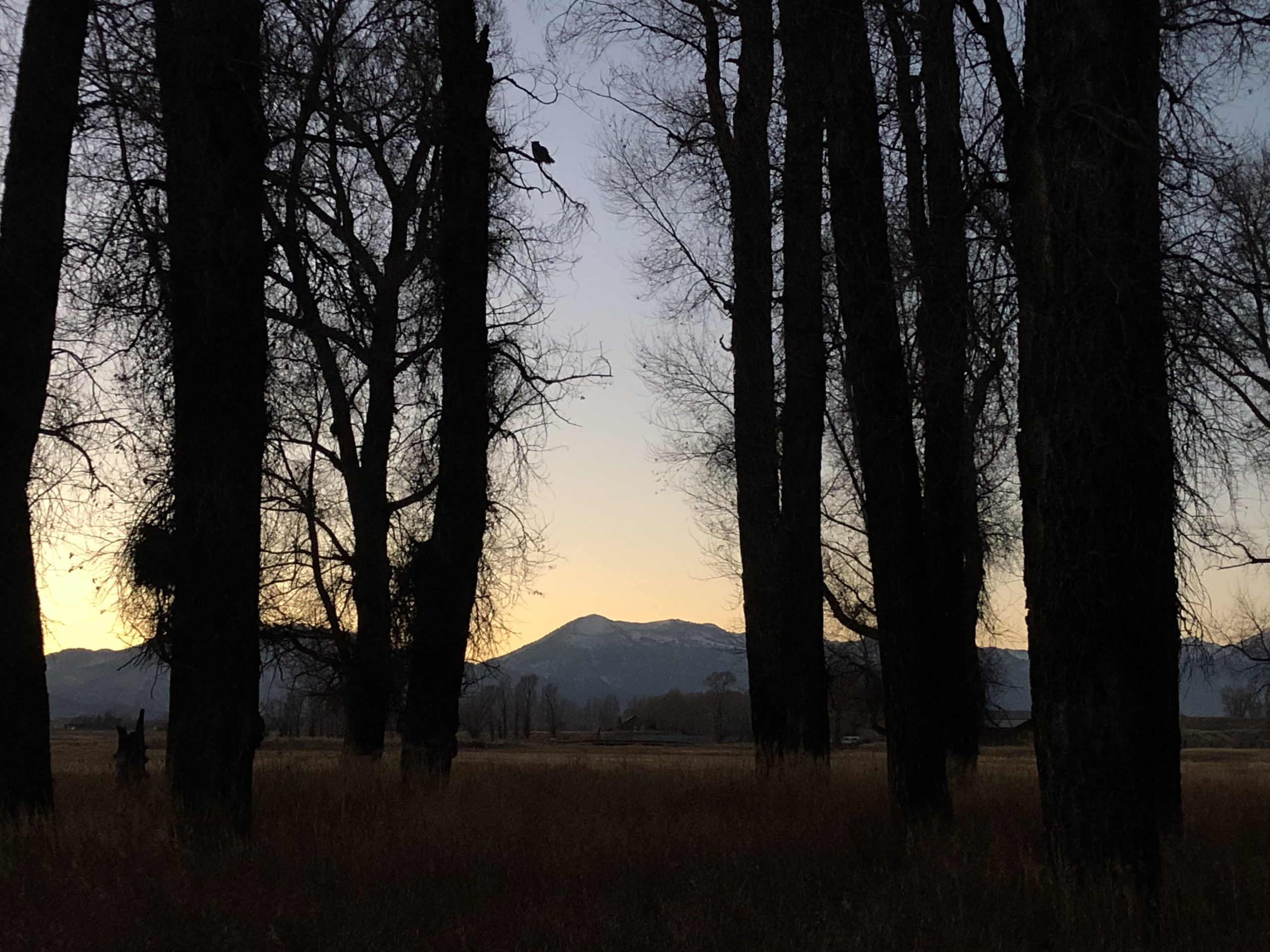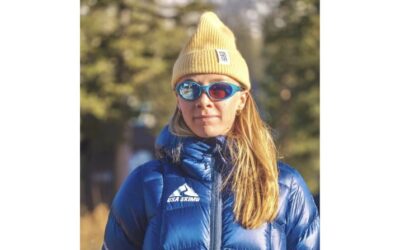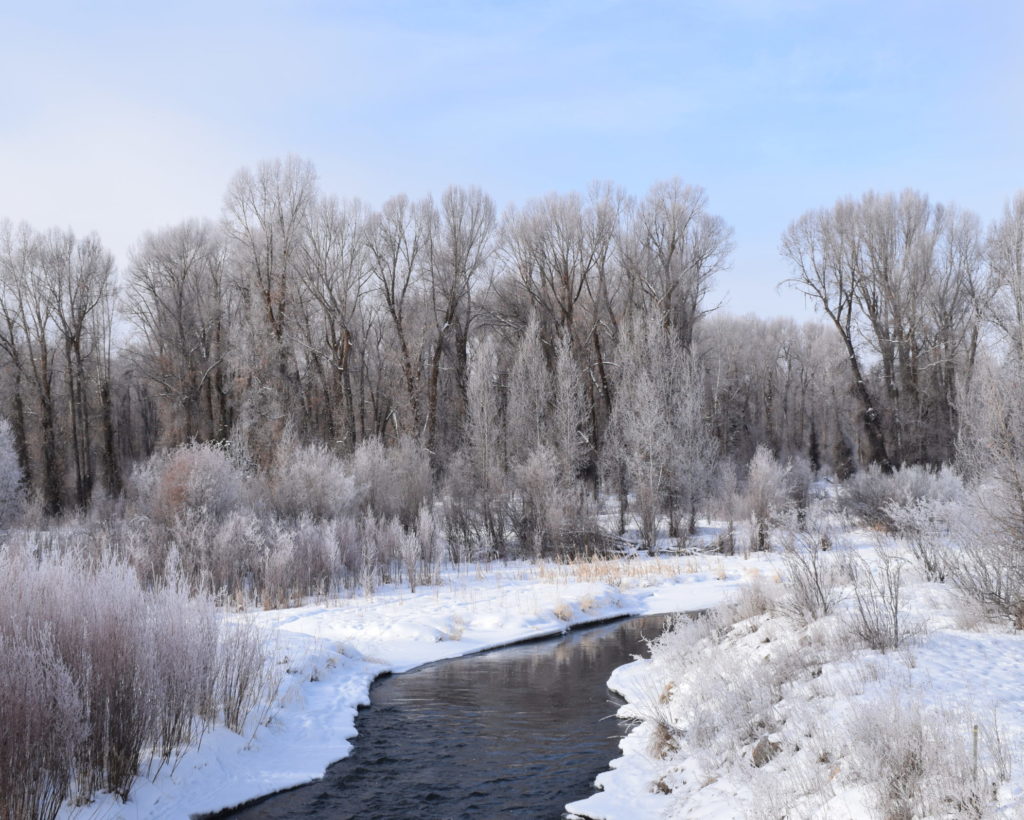
The ecosystem surrounding Jackson’s Wastewater Treatment Plant is an embodiment of tranquility in the winter. (Will Walkey/KHOL)
South of town, there are 10 man-made lagoons. They comprise Jackson’s Wastewater Treatment Plant, which purifies the sewage we all create when washing our dishes, taking our showers, or flushing our toilets. Go there right now, and it’s actually a serene scene. The area is surrounded by wetlands and meandering creeks, which filter water coming out of the treatment plant back into the Snake River. Elk and moose congregate in these wide-open spaces in the winter, as Cottonwood trees glisten with snow and ice on their branches.
Come back in April, and this area will be like Times Square for bird activity. Waterfowl, shorebirds, and other avian species all gather and feed in these natural wetlands. Johnny Ziem is Wastewater Manager/Assistant Public Works Director or the Town of Jackson. He said the area is a crucial ecosystem and an incredible site for wildlife viewing.
“It’s great to come out in the springtime,” Ziem said. “There’s baby mallard ducks. There’s baby geese. There’s baby trumpeter swans. Hunters sit around those wetlands and hunt waterfowl. I don’t tell them that the waterfowl is eating off the treatment plant ponds, but it’s amazing.”
And now, Ziem and others want to make the ecosystem even more vibrant. Teton County, Wyoming Game and Fish, and several other partners across the region are finalizing plans to enhance and restore the wetland habitat surrounding Jackson’s sewage treatment plant. Martin Grenier works for the nonprofit conservation organization Ducks Unlimited, and is helping to design this project.
“So, what we’re looking to do is to enhance and diversify the wetland types by adding seasonal wetlands,” he said. “Wetlands that would be flooded primarily in the springtime and in the fall, but dry during the growing season. And what that’ll do is, they’ll not only help improve water quality, but they should help improve potentially the vertical structure and the plant diversity.”
This new system will not reinvent the wheel, it’ll just make it more efficient. For decades, wetlands have been a well known tertiary treatment source of wastewater—that means they naturally remove nitrates, nutrients, and other impurities from the water before it reaches a main source, like the Snake River. Grenier and other planners will be building embankments and other infrastructure to reroute more water from the treatment facility through these new seasonal wetlands, which will actually be healthy for the ecosystem.
“It turns out that wetland systems are very good at overcoming disturbance,” Grenier said. “In fact, wetlands are most productive when they’re being disturbed on a regular basis. You have plants or biomasses that will grow in those wetland systems that will metabolize the nutrients. And so that’s where they act as a sponge and actually retain those nutrients and keep them from going into other systems. And so they’re probably the most resilient system—one of the most important systems—that we have on Earth. And yet they’re also arguably one of the most undervalued systems that we have.”
Those plants that grow provide food for bugs, which provide food for birds, which creates Times Square. That’s how those wetlands will affect the area in ways we can see and hear. But Ziem focuses on things we can’t see with the naked eye—the nitrates and nutrients found in treated wastewater.
“Wetlands act like kidneys,” he said. “There’s always some components that remain because of the [wastewater] treatment process—not because they weren’t treated, but because you have treated the waste effectively. That doesn’t mean it’s necessarily done. A lot of those nutrients are kind of left behind in a way that is super beneficial to a wetland system.”
The current sewage treatment plant has a small wetland system, which has been used since 1998. It already reduces nitrates going into the Snake River by 92 percent, a really good rate that’s well within state regulations, but this proposed project will only make it better. Plus, it won’t expend a lot of energy once it’s built.
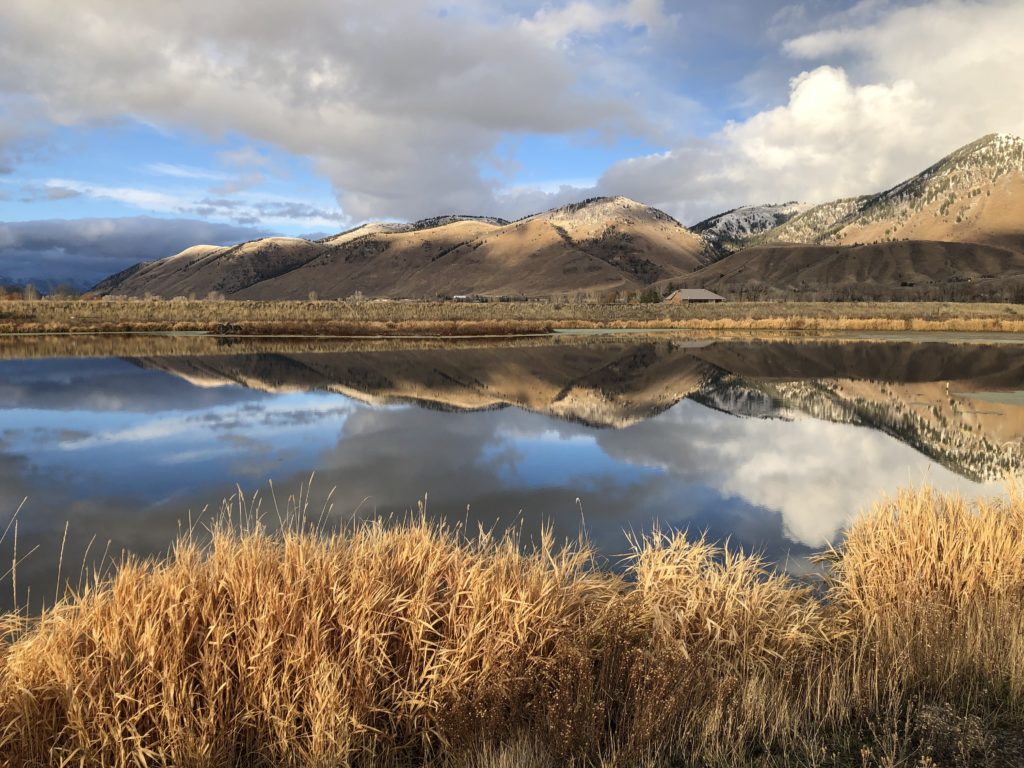
The Town of Jackson’s current Wastewater Treatment Plant consists of 10 lagoons, which process sewage over the course of 100 days. (Mark Gocke/Wyoming Game & Fish)
“This isn’t necessarily a project where the Wastewater Treatment Plant has a problem and we’re trying to solve it,” Ziem said. “It’s a win-win for us. We want our water to get used or reused again in a system like this. And a system like Martin’s designed is going to need water.”
And Jackson residents provide that wastewater, and those nutrients, for 365 days a year. The new wetlands will be built on Wyoming Game and Fish property. Derek Lemon is Habitat and Access Coordinator for this region at the agency, and said this project is actually being planned where seasonal flooding used to be—before dikes were built in the 20th century to protect homes and farms.
“Pretty much the whole area is a meander scar from the Snake River and Flat Creek,” Lemon said. “Throughout time it has been a river bottom. So, with flooding and different scarring, Cottonwoods would probably flourish down there.”
And more Cottonwoods mean even more ungulate populations in the winter. This project is still in its permitting phase, but Lemon said planners are hoping to start moving dirt this year. It’s an especially exciting project for Game and Fish because of the sheer biodiversity that could potentially move into this new seasonal wetland ecosystem—as well as the enhanced recreational opportunities for outdoor enthusiasts.
Another outcome of this project is that the town will be able to test its water more frequently. This means Jackson’s treatment plant could potentially become a proven, tested model of successful tertiary treatment systems, which officials could showcase across the rest of the state.
“So my hope and my goal is not only to be successful here, but to also be able to go to water quality associations in Wyoming and bring them out here and show them these systems—and hopefully get them excited,” Ziem said. “You can improve water quality in your own community, and it doesn’t take a lot of investment, as it would to rebuild a treatment plant.”
Teton County is no stranger to its own water quality problems. In fact, there are questions about the sewage treatment plant’s effectiveness, as it’s still one of the largest sources of water pollution in the county. But, there’s a reason this project is endorsed by county commissioners, town employees, and local biologists. It’s a no brainer with several positive outcomes that are cost and energy effective. Ziem said this concept—using natural, green infrastructure to our advantage—could be replicated in other parts of the county where water quality issues are more severe.
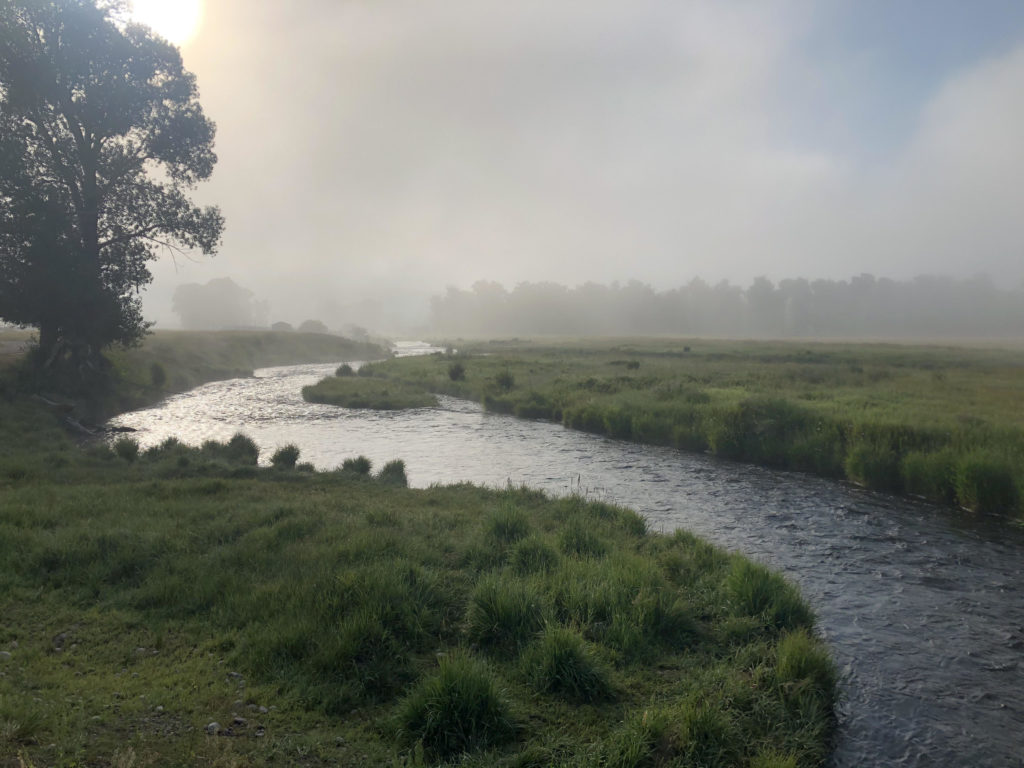
All wastewater from the Town of Jackson travels through the Wastewater Treatment Plant and its surrounding marshes, eventually making its way into the Snake River. (Mark Gocke/Wyoming Game & Fish)

